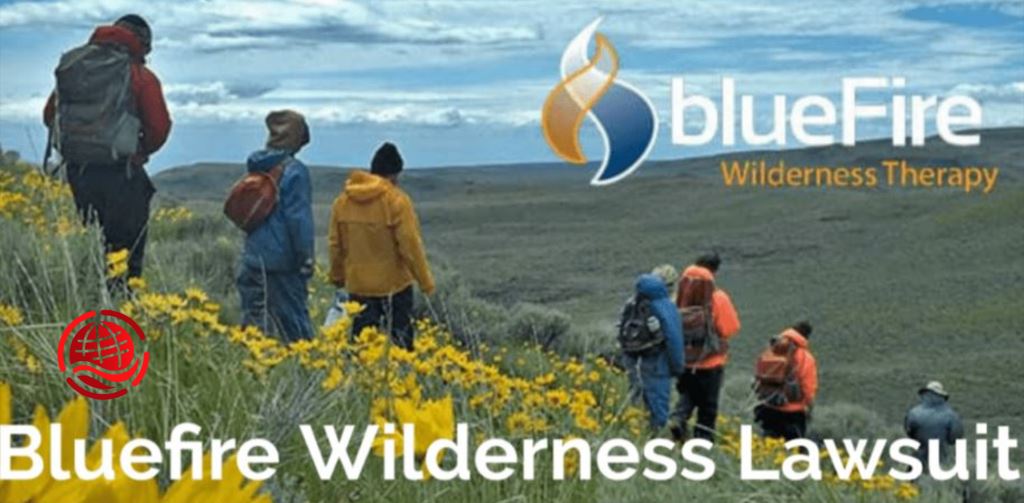The Bluefire Wilderness lawsuit has sparked significant attention and concern among various stakeholders, including families, mental health professionals, and legal experts. This comprehensive exploration delves into the intricate details of the lawsuit, the allegations made, the defense presented, and the broader implications for wilderness therapy programs. Wilderness therapy, a form of treatment that uses outdoor expeditions to foster personal growth and healing, has been lauded for its benefits and criticized for its risks. The lawsuit against Bluefire Wilderness is a pivotal case that challenges the practices, safety standards, and ethical considerations within this controversial form of therapy.
The Genesis of the Legal Battle
The lawsuit against Bluefire Wilderness was initiated by a group of parents who alleged that their children, enrolled in the program for behavioral and mental health issues, faced negligence and abuse. According to the complaint, the allegations ranged from inadequate supervision and safety measures to psychological maltreatment and physical harm. These severe accusations brought the program, and by extension, the wilderness therapy industry, under intense scrutiny.
Allegations and Evidence
The heart of the lawsuit lies in the detailed accounts of former participants who described their experiences as harrowing and traumatic. Reports of being exposed to extreme weather conditions without proper gear, receiving insufficient nutritional support, and enduring harsh disciplinary measures were standard among the testimonies. Furthermore, the lawsuit detailed instances where participants’ mental health concerns were allegedly exacerbated by the program’s methods rather than alleviated.
Defense and Counterarguments
In response to the lawsuit, Bluefire Wilderness and its legal team mounted a vigorous defense, asserting that their program is designed with the utmost regard for participant safety and well-being. They highlighted their accreditation by reputable organizations, adherence to industry standards, and employing experienced and qualified staff. The defense also pointed to numerous success stories of participants who credited the program with profound positive life changes.
The Role of Oversight and Regulation
The Bluefire Wilderness lawsuit has underscored the need for stringent oversight and regulation in the wilderness therapy sector. Critics argue that the current framework for ensuring the safety and efficacy of these programs is inadequate, leaving room for potential abuse and negligence. This case has sparked a broader debate about the mechanisms for licensing, monitoring, and evaluating wilderness therapy programs to protect participants from harm.
Ethical Considerations and Industry Impact
Beyond the legal implications, the lawsuit raises significant ethical questions about the wilderness therapy model. It challenges the industry to reflect on its practices, particularly regarding vulnerable populations such as troubled youth. The case also serves as a cautionary tale for parents and guardians, emphasizing the importance of thorough research and due diligence before enrolling a child in such a program.
Personal Stories and Testimonies
At the heart of the Bluefire Wilderness lawsuit are the personal stories of the participants and their families. These narratives provide a human perspective on the legal proceedings, highlighting the emotional and psychological impact of the alleged experiences. Interviews with former participants reveal a spectrum of experiences, from gratitude for life-changing growth to profound trauma and regret.
Legal and Regulatory Repercussions
The outcome of the Bluefire Wilderness lawsuit could have far-reaching implications for the wilderness therapy industry. A ruling in favor of the plaintiffs may lead to increased legal scrutiny, higher standards for accreditation, and more rigorous oversight. Conversely, a verdict favoring Bluefire Wilderness could reinforce the current operational standards of wilderness therapy programs, though likely not without increased public demand for transparency and accountability.
Reflections from Mental Health Professionals
Mental health professionals are divided on the efficacy and ethics of wilderness therapy. While some advocate for its benefits in treating a range of mental health issues, others caution against the risks, especially in the absence of robust evidence and oversight. The lawsuit has prompted a renewed examination of the role of wilderness therapy in mental health treatment, including considerations of best practices, ethical guidelines, and alternative therapeutic options.
A New Paradigm for Safety and Accountability
The lawsuit against Bluefire Wilderness has ignited a crucial conversation about the need for enhanced oversight and regulation within the wilderness therapy industry. This dialogue centers on establishing a new paradigm that prioritizes safety and accountability. Advocates argue for introducing more stringent guidelines and regular inspections by independent bodies to ensure programs operate within the highest ethical and safety standards. This shift towards a more regulated framework could serve as a deterrent against malpractices and ensure that only programs genuinely committed to the welfare of their participants continue to operate.
Navigating the Path Forward
The ramifications of the Bluefire Wilderness lawsuit extend far beyond the courtroom, potentially shaping the experiences of future participants in wilderness therapy. As the case brings to light the vulnerabilities within these programs, it also offers an opportunity to reimagine how they can be structured to serve those in need better. Future participants could benefit from more personalized care, with programs adopting evidence-based practices that are closely monitored and adjusted as needed. The lawsuit could lead to parents and guardians’ more informed and cautious approach, seeking assurances and evidence of a program’s safety and effectiveness before enrollment.
A Collaborative Effort
Rebuilding trust in wilderness therapy after the Bluefire Wilderness lawsuit will require a concerted effort from all stakeholders. Program providers, regulatory bodies, mental health professionals, and families must come together to create an environment where transparency, safety, and participant welfare are the cornerstones of every program. Implementing rigorous accreditation processes, facilitating open communication channels between programs and families, and promoting research into the efficacy of wilderness therapy are crucial steps toward restoring faith in these interventions. Only through a collaborative and open approach can the industry hope to move past the controversy and reaffirm its value to those it aims to serve.
Innovation and Adaptation
Looking ahead, the future of wilderness therapy hinges on its ability to innovate and adapt in response to the challenges highlighted by the Bluefire Wilderness lawsuit. This means addressing the immediate concerns raised, anticipating future needs, and evolving societal expectations. Embracing technology to enhance safety, incorporating a more comprehensive range of therapeutic approaches, and fostering a culture of continuous improvement could all play a part in shaping the next generation of wilderness therapy. By doing so, the industry can ensure it remains a relevant and respected option for those seeking alternative healing and personal growth paths. Top of Form
Conclusion: Navigating the Complex Terrain
The Bluefire Wilderness lawsuit is more than a legal battle; it reflects wilderness therapy’s complex and contentious nature. As the case proceeds, it continues to provoke meaningful conversations about the balance between innovative treatment methods and ensuring the safety and rights of participants. Regardless of the outcome, the lawsuit has already had a significant impact, prompting calls for reform, greater accountability, and a reevaluation of the role of wilderness therapy in the broader mental health landscape. In navigating this complex terrain, the paramount concern must always be the well-being and safety of those seeking help in their most vulnerable moments.
Read Also: It is not wisdom but authority that makes a law. t – Tymoff



